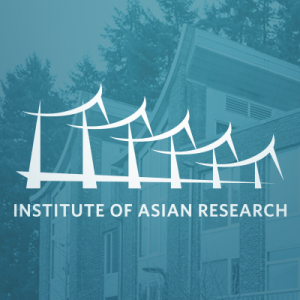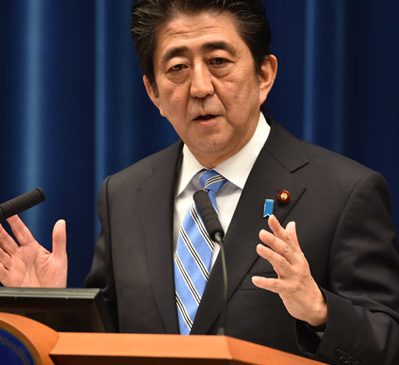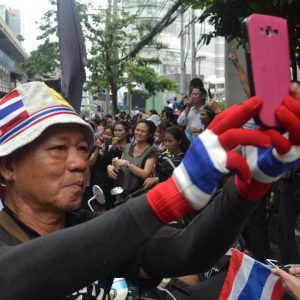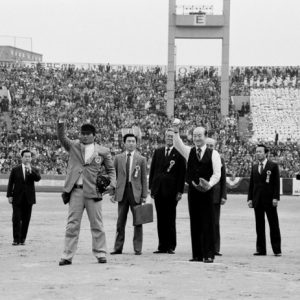Endnotes and Gracenotes
Memo #405 By: Hyung-Gu Lynn (Editor) This announcement marks the end of Asia Pacific Memo’s production of new content for the foreseeable future. Per our Notice of March 8, 2017, we stopped accepting new submissions in late March. This also serves as a brief summation the APM’s run from 2010 to 2017. The intricacies and […]
We Are Soldiers, Bolting Across the Heavens: Women’s Contradictory Empowerment and Sisterhood in Shirai Yumiko’s “Wombs”
Memo #404 By: Akiko Hirao – akiko.hirao [at] gmail.com Women “pregnant” with the fetus of an alien species that allows them to teleport instantaneously as essential transporters of troops and supplies in a desperate war against oppressors – this is the premise of the award-winning manga by Shirai Yumiko, Wombs. An allegorical tale of conflicting […]
Abe Shinzō and Japan’s Proactive Contribution to Realism
Memo #403 By: Giulio Pugliese – giulio.pugliese [at] kcl.ac.uk Abe Shinzō’s comeback in December 2012 triggered a new dynamism in Japanese security practices. Relative domestic political stability, a deteriorating regional environment, and Abe’s appreciation for high politics has enabled the Japanese government to push for constitutional reinterpretation, pass embattled security legislation, and inaugurate new security […]
Unfit for Broadcast: The Censorship of K-pop Girl Groups
Memo #401 By: Azalea Lee – azalea [at] mail.ubc.ca With new K-pop girl groups debuting on a seemingly monthly basis, differentiation between groups is often attempted by pushing the sexual envelope—skirts are getting shorter, lyrics are becoming more suggestive, and choreography more risqué. This overexposure is often flagged and ultimately censored by the organizations that […]
Improving Political Engagement via Facebook in Thailand
Memo #400 By: Aim Sinpeng – aim.sinpeng [at] sydney.edu.au Do social networking platforms like Facebook, Twitter or Firechat improve political participation among the previously disengaged? If so, do they transcend existing socioeconomic divides in political engagement? While some see the rise of online political engagement among youths in North America and Europe, whose participation in […]
More than Sports: Politics in the Origins of the Professional Baseball League in South Korea
Memo #399 By: Jinsung Kim – mitol8274 [at] gmail.com The KBO (Korean Baseball Organization), South Korea’s professional baseball league, has grown both quantitatively and qualitatively since its establishment in 1982. Some 7 million domestic fans attended games in 2016, while the Korean national team’s victories at the 2008 Beijing Olympic Games and the 2015 WBSC Premier12 attracted […]
The Future of Cambodian Heritage under China
Memo #398 By: Sarah K. Youngblutt – syoungblutt [at] gmail.com Of the 193 States Parties to the UNESCO World Heritage Convention (1972), Italy (with 47), Spain (45), France (42), and Germany (41) had traditionally held the most World Heritage Sites (WHS), with half of all WHS located in Europe and North America. In recent years, China […]







